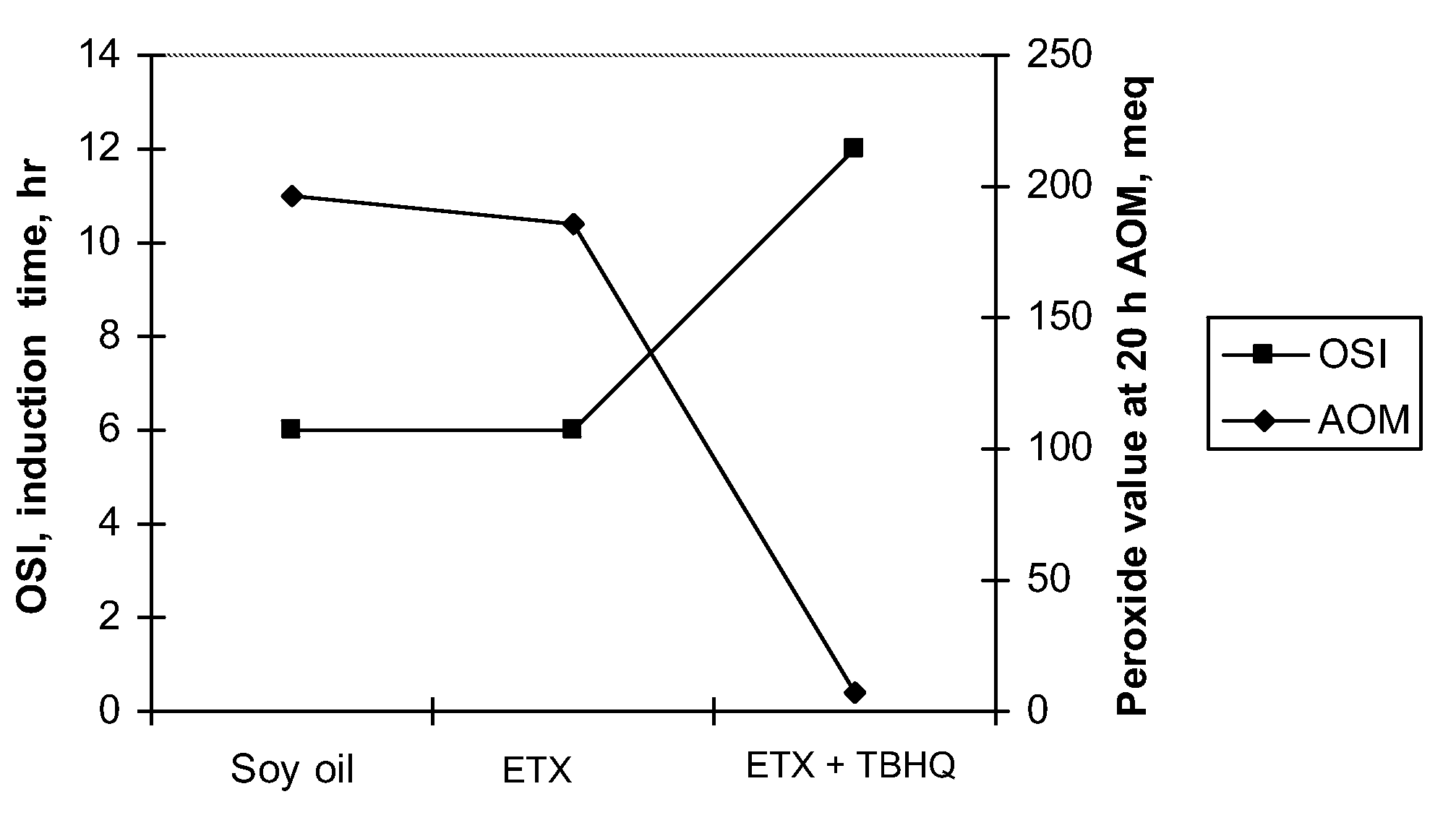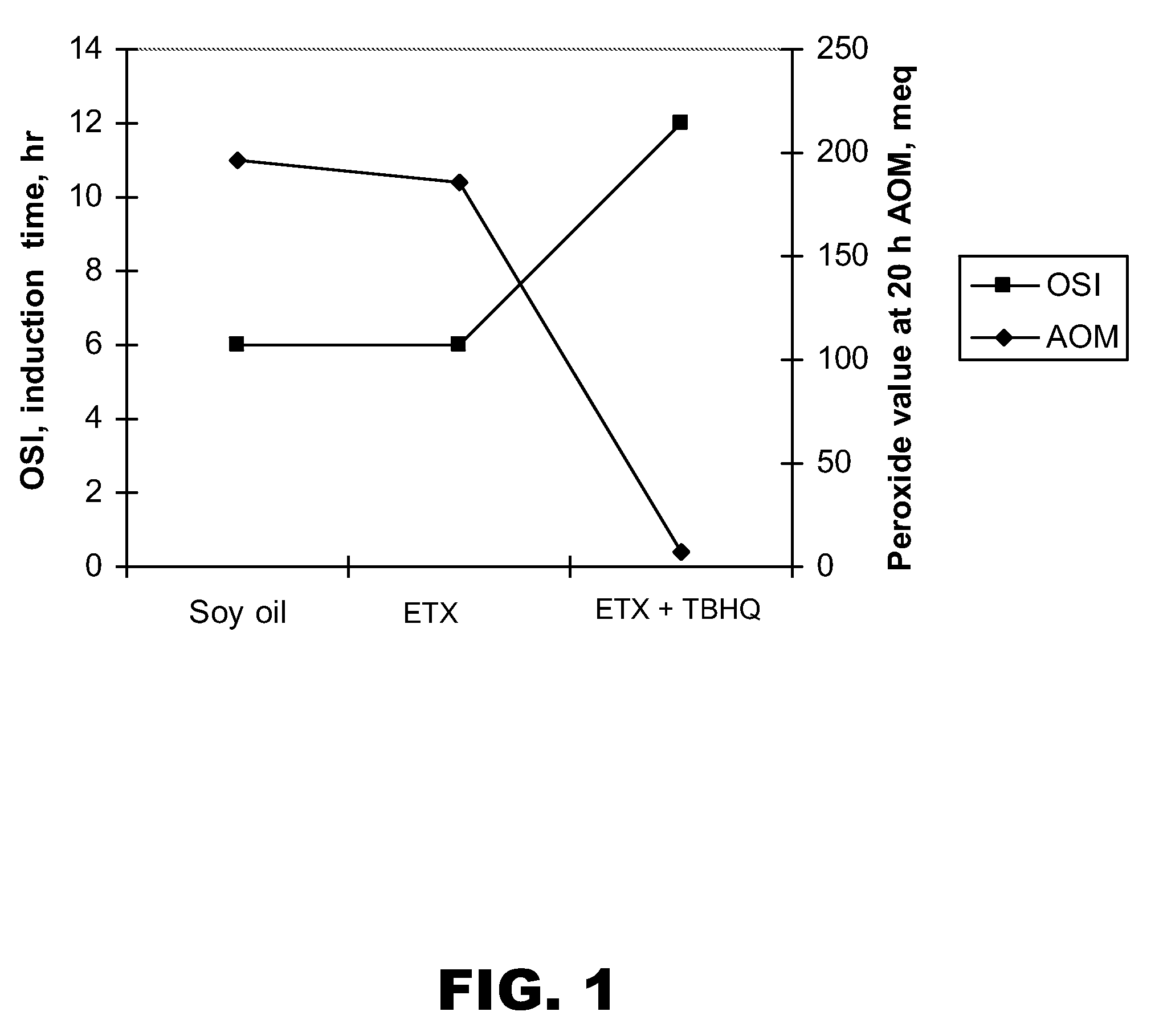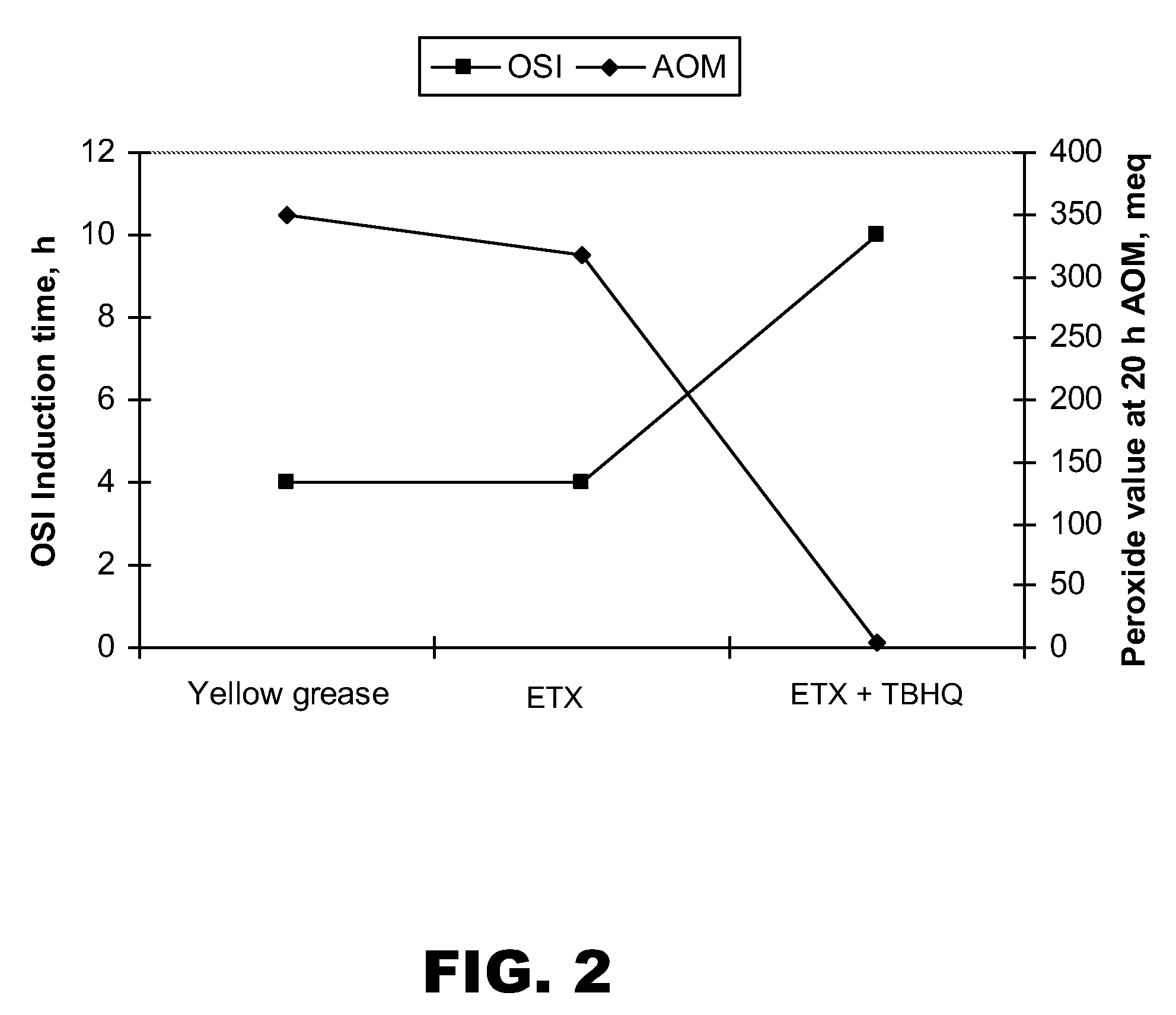Antioxidant combinations for use in ruminant feed rations having a fat source
a technology of antioxidants and ruminant feed, which is applied in the direction of biocide, drug composition, metabolic disorder, etc., can solve the problems of reducing the value of fats, and reducing the nutritional value of fats, so as to reduce the negative rumen
- Summary
- Abstract
- Description
- Claims
- Application Information
AI Technical Summary
Benefits of technology
Problems solved by technology
Method used
Image
Examples
example 1
Effectiveness of Antioxidant Blends vs. Individual Antioxidants in Stabilizing Oils or Fats
[0091]The purpose of this study was to compare the effectiveness of a blend of ethoxyquin (ETX) and tertiary butyl hydroquinone (TBHQ) versus ETX alone or TBHQ alone to prevent the oxidation of soybean oil, yellow grease, and wet distiller grains. A combination of ETX and TBHQ is sold under the trademark AGRADO PLUS® (Novus International, Inc.; St. Louis, Mo.). AGRADO PLUS® is a blend of 65% ethoxyquin, 7% tertiary butyl hydroquinone, 7% citric acid, 19% propylene glycol, and 2% corn oil. Preparations of ETX are sold under the trademarks AGRADO® and SANTOQUIN® (Novus International, Inc.; St. Louis, Mo.).
[0092]Methods. The stability of the lipid material was assessed using the active oxygen method (AOM) and / or the oil stability index (OSI) methods. The AOM measures the stability of an oil or fat by bubbling air through the oil or fat sample using specific conditions of flow rate, temperature, a...
example 2
The Combination of Ethoxyquin and Tertiary Butyl Hydroquinone Stabilize Oils and Fats Used in Ruminant Diets
[0097]The objective of this study was to evaluate the ability of a combination of ethoxyquin and tbhq to stabilize non-inert oils and fats used in cattle diets.
[0098]Methods. The degree of oxidation and the fatty acid profile were determined in five different sources of dietary oils or fats before and after artificial oxidative stresses. The oils or fats were: corn oil (co), soybean oil (so); menhaden fish oil (fo); yellow grease (yg); and a blend of corn oil, fish oil, and yellow grease (bo). The quality of each oil or fat was determined initially by determining the degree of oxidation (initial peroxide value, ipv). The initial peroxide value is a measure of the concentration of peroxides and hydroperoxides formed during the initial stages of lipid oxidation. Milliequivalents of peroxide per kg of fat (meq / kg) were measured by titration with iodide ion.
[0099]The oils or fats ...
example 3
The Combination of Ethoxyquin and TBHQ Prevent the Oxidation of Fatty Acids in Solid Feedstuffs
[0105]Approximately 50% of the dietary lipids of cattle come from feedstuffs other than supplemental oils and fat. Feedstuffs such as cottonseed, distillers grains, soybean products and fishmeal significantly contribute to the total dietary lipids. Most of the lipids from these ingredients contain high levels of unsaturated fatty acids that are prone to oxidation. For example, distillers grains from the ethanol industry are sources of unsaturated fatty acids that are fairly unstable. The heating process during distillation and high water content of the wet distillers grains exacerbate the oxidation process of the unsaturated fatty acids. The end result is a highly oxidized and unstable fat in the distiller grains. The objective of this study was to determine the effectiveness of the combination of ETX+TBHQ to stabilize the lipids in wet distillers grains (WDG) or flax seed.
[0106]Methods. T...
PUM
| Property | Measurement | Unit |
|---|---|---|
| particle size | aaaaa | aaaaa |
| particle size | aaaaa | aaaaa |
| particle size | aaaaa | aaaaa |
Abstract
Description
Claims
Application Information
 Login to View More
Login to View More - R&D
- Intellectual Property
- Life Sciences
- Materials
- Tech Scout
- Unparalleled Data Quality
- Higher Quality Content
- 60% Fewer Hallucinations
Browse by: Latest US Patents, China's latest patents, Technical Efficacy Thesaurus, Application Domain, Technology Topic, Popular Technical Reports.
© 2025 PatSnap. All rights reserved.Legal|Privacy policy|Modern Slavery Act Transparency Statement|Sitemap|About US| Contact US: help@patsnap.com



